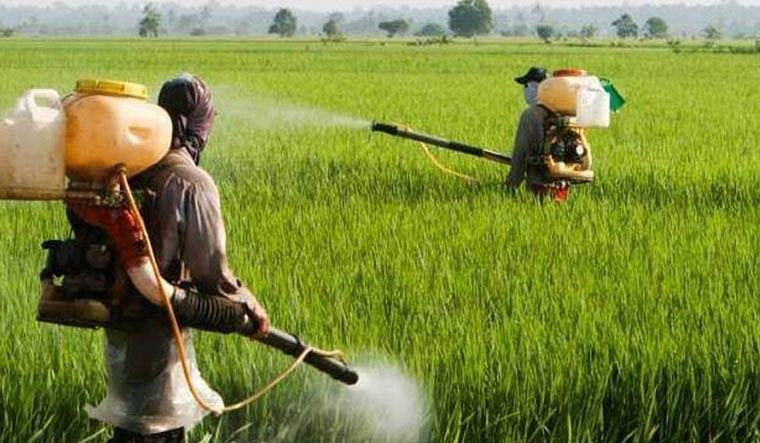
SJM demands complete ban on use of Glyphosate
Swadeshi Jagran Manch (SJM) has demanded a complete ban on the use of Glyphosate in India, claiming that the herbicide is subject of thousands of litigations in the United States courts “primarily due to its risk of causing cancer”.
“Other health implications and ill effects on farming and environment have been clearly documented,” said the SJM in its objections to the recent government’s draft order on ‘restriction on the use of Glyphosate’. In a formal objection, sent to the Agriculture Ministry the SJM said that the entire concept of the order was “ill-conceived and what is needed is a total ban on Glyphosate use in India”.
The ministry in its draft order, issued on July 6, proposed restriction on the use of Glyphosate and formulated many dos and don’ts for its continued use in a restricted manner through pest control operators (PCOs). Responding to the draft order, SJM said, “It is our view that the proposed measure of allowing the use of Glyphosate through pest control operators is meaningless and ill-conceived as it will be impossible to implement and control illegal practices by which Glyphosate is presently being used.”
Also, the proposal would result in increased damage to consumer health, farmer interests, farmworkers’ livelihoods and ecology.
SJM had last year launched an online petition, demanding a complete ban on the use of Glyphosate in the country. The petition addressed to the Prime Minister Narendra Modi, has so far been signed by over two lakh people.
Enlisting 14 points to strengthen the SJM’s demand, through aletter to the ministry said, “In terms of conception, the Order does not restrict sale but the only usage to be done by PCOs. Once a sale takes place, there will be no means of controlling usage by lakhs of farmers who may or may not use a PCO.”
Noting that there is already a restriction under existing law on the use of Glyphosate other than for tea plantations and “non-crop areas”, SJM said, “Yet, Glyphosate is blatantly being used for illegally grown Herbicide Tolerant (HT) cotton and this has been going on for years with the full knowledge of the Genetic Engineering Appraisal Committee (a central regulator under environment ministry).”
Referring to pending lawsuits in the US courts, SJM said, “At present in the US alone there are more than 1,25,000 lawsuits against the company producing herbicides with Glyphosate as major ingredients, for having caused the rampant spread of cancer. It’s notable that even the World Health Organization’s (WHO) International Agency for Research on Cancer (IARC) had declared Glyphosate to be probably carcinogenic.”
Kerala, which is a major tea growing state, has asked for a ban on Glyphosate and West Bengal has restricted its use to only six tea-growing districts. Glyphosate is essentially a weed killer. Farmers prefer to use it to cut labour costs.
SJM said that the proposed order was also at complete variance with the central government policy of promoting natural farming, organic farming and traditional farming.
Besides SJM, several other organisations including Alliance for Sustainable and Holistic Agriculture (ASHA) too demanded a complete ban on the use of Glyphosate in the country and submitted their formal objections to the ministry.
“It is not out of place to point out that scientific evidence exists of Glyphosate compromising the human immune system and in these tumultuous times of the Corona pandemic, where the human ability to withstand infectious diseases is clearly demonstrated as being vulnerable, a decisive ban on a deadly chemical like Glyphosate is the only right thing to do,” said KavithaKuruganti, co-convenor of the ASHA.
On the proposed restricted use of Glyphosate through PCOs, Kuruganti in her formal objection on the draft order said, “… the hitch with this order is that the government has not a restricted sale of Glyphosate and has sought to regulate ‘usage’ of Glyphosate. A usage, which happens after the pesticide is purchased at the retailer end is not regulated and not in control of the government in terms of its capabilities to regulate.
“In the absence of end-use regulation, it is unlikely that the government will be able to check whether usage after purchase by farmers is happening through PCOs or not, that too in the case of lakhs of farmers who are currently using Glyphosate indiscriminately, without full information on the chemical.”


